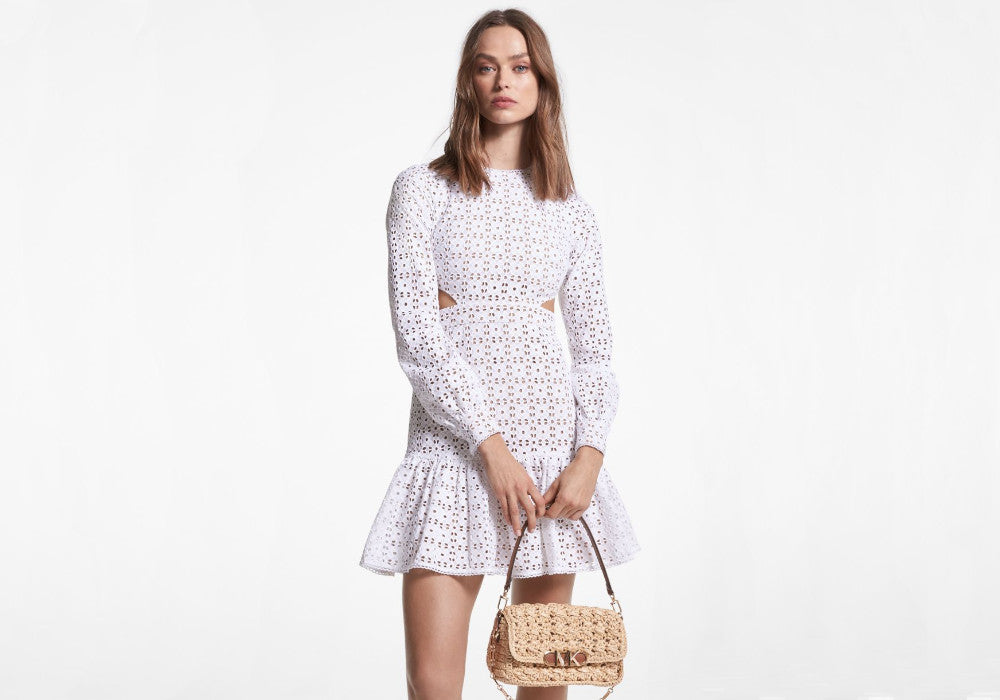
Michael Kors is an American fashion brand founded in 1981 in New York by clothing designer Michael David Kors. The multinational clothing-retail company creates luxury fashion for men, women, and children.
Michael Kors makes clothing, accessories, shoes, swimwear, eyewear, and fragrances. The multinational fashion holding company, Capri Holdings Limited, owns Michael Kors and other brands, including Jimmy Choo and Versace.
Capri Holdings has approximately 14,600 employees, consisting of approximately 9,700 full-time employees and approximately 4,900 part-time employees, with approximately 11,000 of its employees engaged in retail selling and administrative positions.
Michael Kors innovatively manufactures its collections according to rigorous sustainability standards. It understands the responsibility we all have as citizens of the world and aims to become more sustainable.
Panaprium is independent and reader supported. If you buy something through our link, we may earn a commission. If you can, please support us on a monthly basis. It takes less than a minute to set up, and you will be making a big impact every single month. Thank you!
Sustainability Rating: 5/10
Rating FAQ
Category: Clothing, accessories, shoes, bags, jewelry
For: Women, men, children
Type: Basics, denim, dresses, knitwear, activewear, underwear, loungewear, swimwear, outerwear, pumps, sandals, boots, sneakers
Style: Chic, classic
Quality: High
Prices: $$$
Sizes: 2XS-2XL, 0-14 (US), 2-16 (UK), 32-44 (EU), 4-18 (AU)
Fabrics: Cotton, linen, lyocell, modal, viscose, cupro, acetate, polyester, nylon, spandex, polyethylene, polypropylene, acrylic, neoprene, polyurethane, rubber, leather, wool, silk, down
100% Organic: No
100% Vegan: No
Ethical & Fair: No
Recycling: Yes
Producing countries: not transparent enough
Certifications: GOTS, OCS, GRS, RCS, RDS, RWS, LWG, FSC
Sustainability Practices
Michael Kors takes wide-ranging measures to protect biodiversity, reduce its consumption of water, energy, and other resources, avoid waste, and combat climate change.
It wants to be better and more efficient by looking at every aspect of its value chain to ensure the healthy functioning of our planet. However, the majority of its business remains detrimental to the environment.
Michael Kors only uses a tiny proportion of organic materials such as organic cotton or recycled materials such as recycled polyester and regenerated nylon.
Most of the fabrics it uses are either natural without relevant certifications, such as regular cotton or linen, or synthetic petroleum-based fibers such as polyester, nylon, acrylic, and more.
Michael Kors also uses a small proportion of semi-synthetic fibers or regenerated cellulosic fabrics such as lyocell, modal, acetate, and viscose.
Michael Kors doesn't publish a list of all its manufacturers and processing facilities on its corporate website. It remains committed to driving greater transparency and accountability across its supplier base.
The 2022 Fashion Transparency Index gave Michael Kors a score of 13% based on how much the group discloses about its social and environmental policies, practices, and impacts.
Michael Kors manufactures its clothes in many East Asian countries, where human rights and labor law violations happen every day.
The American clothing retailer doesn't show any labor certification standard that would ensure good working conditions, decent living wages, health, safety, and other crucial rights for workers in its supply chain.
Michael Kors has a code of conduct that applies to all its suppliers and subcontractors. It assesses compliance with its Code of Conduct by informal visits or third-party audits with or without notice.
Michael Kors doesn't use exotic animal skin, hair, fur, or angora. But it uses leather, wool, silk, and down feathers to manufacture many of its clothing pieces.
These animal-derived materials are cruel and unethical. They also harm the environment by producing greenhouse gases and waste. More sustainable alternatives exist.
Sustainability Goals
Michael Kors plans to reduce its GHG emissions by 50% in Scope 1 and 2 and 50% in scope 3 (in the Purchased Goods category), by 2030. It aims to achieve carbon neutrality across its direct operations by 2025.
Michael Kors has set a target of achieving 100% renewable energy in its direct operations by 2025. It will ensure all the plastic it sources is recyclable, compostable, recycled or reusable by 2025.
Michael Kors has committed to rolling out circular design and materials trainings to its design and production teams in 2023.
It will also continue to improve upon the ways it measures water inventory throughout its supply chain to hold it accountable to its goal of achieving a 10% reduction in key suppliers' aggregate water use by 2025.
Buy Here
Discover Michael Kors' sustainable collections at MichaelKors.com.
Reviews And Experiences With Michael Kors
Have you had (good) experiences with shopping at or the products of Michael Kors? Then leave us your rating below.
What We're Up Against
Multinational corporations overproducing cheap products in the poorest countries.
Huge factories with sweatshop-like conditions underpaying workers.
Media conglomerates promoting unethical, unsustainable products.
Bad actors encouraging overconsumption through oblivious behavior.
- - - -
Thankfully, we've got our supporters, including you.
Panaprium is funded by readers like you who want to join us in our mission to make the world entirely sustainable.
If you can, please support us on a monthly basis. It takes less than a minute to set up, and you will be making a big impact every single month. Thank you.






























0 comments